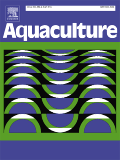
AQUACULTURE
Scope & Guideline
Driving sustainable practices in the world of aquaculture.
Introduction
Aims and Scopes
- Sustainable Aquaculture Practices:
Research aimed at improving the sustainability of aquaculture systems, including integrated multi-trophic aquaculture (IMTA) and biofloc technology. - Aquatic Health Management:
Studies focusing on disease prevention, pathogen identification, and immunological responses in aquaculture species, including the development of vaccines and probiotics. - Nutritional Strategies:
Investigations into the dietary needs and nutritional optimization for various aquaculture species to enhance growth, health, and product quality. - Genetic Improvement and Breeding:
Research on selective breeding, genome-wide association studies (GWAS), and genetic markers to improve desirable traits such as growth, disease resistance, and reproductive performance. - Environmental Impacts and Management:
Studies examining the effects of environmental factors such as temperature, salinity, and pollution on aquaculture species and systems, including the management of aquaculture waste. - Technological Innovations:
Application of new technologies such as CRISPR gene editing, machine learning, and automated systems in aquaculture for enhanced efficiency and productivity.
Trending and Emerging
- Microbiome Research:
An increasing number of studies focus on the gut microbiome of aquaculture species, exploring its role in health, growth, and disease resistance, indicating a growing understanding of the microbiome's importance in aquaculture. - Climate Change Adaptation:
Research addressing the impacts of climate change on aquaculture practices and species resilience is becoming more prominent, emphasizing the need for adaptive strategies in aquaculture management. - Alternative Protein Sources:
There is a notable trend towards investigating alternative protein sources, such as insect meal and plant-based proteins, as replacements for traditional fish meal, reflecting sustainability concerns. - Genetic and Genomic Technologies:
The use of genomic selection and CRISPR technology to improve aquaculture species is on the rise, indicating a shift towards precision breeding techniques in aquaculture. - Consumer Preferences and Market Dynamics:
Emerging research into consumer preferences for aquaculture products, including sustainability and welfare considerations, is gaining traction, reflecting changing market demands.
Declining or Waning
- Traditional Aquaculture Methods:
Research on conventional aquaculture methods is declining as newer, more sustainable practices gain prominence, reflecting a shift towards innovative and environmentally friendly approaches. - Over-reliance on Fish Meal:
Studies focusing on the use of fish meal as a primary protein source are less common as the industry seeks alternatives such as plant-based proteins and insect meals to reduce pressure on wild fish stocks. - Generalized Disease Studies:
Research that does not specify pathogens or lacks a focus on specific aquaculture species is becoming less prevalent, with a trend towards more targeted investigations addressing specific diseases and their management. - Basic Physiological Studies:
Basic studies on fish physiology without direct applications to aquaculture practices are seeing reduced interest, as applied research that addresses immediate industry needs takes precedence.
Similar Journals

Water Biology and Security
Exploring the depths of water science and security.Water Biology and Security, published by KEAI PUBLISHING LTD, is a pivotal open-access journal that has been addressing critical issues in the interdisciplinary fields of water sciences, aquatic biology, and environmental sustainability since its inception in 2022. With an E-ISSN of 2772-7351 and a distinguished ranking within the top quartile (Q1) of several categories including Agricultural and Biological Sciences, Animal Science and Zoology, Aquatic Science, and Water Science and Technology, the journal stands out as a leading platform for innovative research. Based in Beijing, China, and supported by an impressive impact factor derived from its Scopus rankings, the journal aims to disseminate high-quality and impactful research that addresses the challenges related to water resources and ecosystems. Its open-access format enhances accessibility, ensuring that vital information reaches policymakers, practitioners, and scholars worldwide. As we converge through 2024, the journal aspires to foster a vibrant scholarly community, facilitating dialogues that inform practice and advance the scientific understanding of aquatic environments.
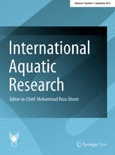
International Aquatic Research
Exploring the depths of aquatic science and innovation.International Aquatic Research, published by the Islamic Azad University, Tonekabon Branch, is a vital open-access journal dedicated to advancing the field of aquatic sciences since its inception in 2009. With an ISSN of 2008-4935 and an E-ISSN of 2008-6970, the journal plays a significant role in disseminating high-quality research findings from Iran and around the globe. It covers a broad range of topics in aquatic biology, fisheries science, and marine ecology, making it a valuable resource for researchers, professionals, and students alike. As of 2023, it ranks in the third quartile (Q3) of the aquatic science category with a Scopus rank of #138 out of 247 in Agricultural and Biological Sciences, reflecting its growing influence in the field. With a commitment to promoting scientific knowledge and fostering collaboration among aquatic research communities, International Aquatic Research is positioned as an essential platform for those dedicated to understanding and conserving marine and freshwater environments.

AQUACULTURE INTERNATIONAL
Championing Research for a Sustainable Aquaculture IndustryAquaculture International is a premier peer-reviewed journal dedicated to advancing the field of aquaculture and aquatic sciences. Published by Springer in the Netherlands, this journal has established itself as a critical resource for researchers, professionals, and students seeking to explore the latest advancements and innovations in the aquaculture industry. With an impressive impact ranking—Q2 in both Agronomy and Crop Science, and Aquatic Science as of 2023—this journal ranks favorably within its categories, placing in the top percentiles of Scopus' metrics. Covering a diverse array of topics related to sustainable aquaculture practices, species cultivation, and environmental impacts, Aquaculture International aims to foster dialogue and collaboration among scholars and industry practitioners. As the field evolves, the journal remains committed to publishing high-quality research that informs policy and practice, enhancing the sustainability of aquatic resources from 1993 to 2024 and beyond.

ICHTHYOLOGICAL RESEARCH
Advancing knowledge for sustainable aquatic ecosystems.Ichthyological Research is a prominent journal in the field of ichthyology, focusing on the biology, ecology, and conservation of fish species and their habitats. Published by Springer Japan KK, this journal has been a significant contributor to aquatic research since its inception in 1996 and will continue to disseminate cutting-edge findings through 2024. With an Impact Factor that places it within Q2 of the Ecology, Evolution, Behavior, and Systematics category, it ranks #318 out of 721 in Scopus, situating it in the 55th percentile of its field. This journal serves as a valuable resource for researchers, professionals, and students, offering open access to vital studies that drive forward our understanding of fish ecology and biodiversity. Located in Tokyo, Japan, Ichthyological Research aims to bridge gaps between theoretical research and practical application, emphasizing the conservation of aquatic ecosystems.
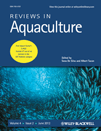
Reviews in Aquaculture
Exploring the Depths of Aquatic ScienceReviews in Aquaculture, published by Wiley, stands as a premier journal in the field of aquaculture and environmental science, dedicated to advancing knowledge and research on aquatic species and their management. Since its inception in 2009, the journal has built a robust reputation, achieving a remarkable Q1 ranking in prestigious categories including Aquatic Science, Ecology, and Management, Monitoring, Policy, and Law as of 2023. With a focus on delivering high-quality, peer-reviewed articles, it plays a critical role in disseminating innovative research and practical solutions to global challenges in aquaculture. Researchers, professionals, and students can navigate through the latest advancements in the field, gaining insights that are vital for sustainable practices and policy-making. The journal's impact is further highlighted by its exceptional Scopus rankings, placing it in the top percentile across various environmental and agricultural disciplines, making it an essential resource for those seeking to stay at the forefront of aquaculture research.
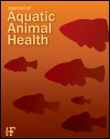
JOURNAL OF AQUATIC ANIMAL HEALTH
Enhancing understanding of aquatic animal well-being.JOURNAL OF AQUATIC ANIMAL HEALTH, published by Wiley, is a premier scholarly journal dedicated to advancing the field of aquatic animal health. With an ISSN of 0899-7659 and an E-ISSN of 1548-8667, this journal has established itself as a key resource for researchers, professionals, and students involved in aquatic sciences since its inception in 1989. Covering a comprehensive range of topics within aquatic animal health, the journal aims to disseminate significant findings and foster multidisciplinary collaborations. As of 2023, it is ranked in the third quartile (Q3) within the broader category of Aquatic Science, according to Scopus, reflecting its growing influence in the field. Operating without an open access model, the journal maintains stringent standards for publication, ensuring that it remains a respected platform for high-quality research. Located in Hoboken, NJ, the journal is poised to continue contributing vital insights that enhance the understanding and management of aquatic animal health worldwide.

FISHERIES SCIENCE
Empowering sustainable practices through scientific insights.Fisheries Science, published by Springer Japan KK, is a renowned journal in the field of aquatic science, effectively bridging the gap between scientific research and practical application in fisheries management. With an ISSN of 0919-9268 and an E-ISSN of 1444-2906, this journal serves as a vital resource for researchers, professionals, and students interested in advancing their knowledge and understanding of aquatic ecosystems and fishery practices. Operating within a competitive landscape, Fisheries Science has achieved a respectable ranking in Scopus, placing 96th out of 247 journals in the Agricultural and Biological Sciences > Aquatic Science category, showcasing its integral role in contributing to this dynamic field. The journal encompasses a wide range of topics from sustainable development to conservation strategies, aiming to foster collaborative research and innovative solutions to the challenges facing fisheries today. While not an open-access journal, Fisheries Science remains a key publication for those dedicated to marine science and the sustainable management of aquatic resources, with a historical footprint extending from 1994 to 2024.
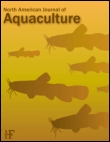
NORTH AMERICAN JOURNAL OF AQUACULTURE
Exploring the depths of knowledge in aquaculture research.North American Journal of Aquaculture, published by Wiley, is a premier resource in the field of aquatic science, dedicated to advancing knowledge and research in aquaculture practices across North America. With an ISSN of 1522-2055 and E-ISSN of 1548-8454, this journal serves as an essential platform for researchers, industry professionals, and students focusing on sustainable practices, species cultivation, and aquatic ecosystems. Notably, it ranks in the Q3 category in Aquatic Science according to the 2023 metrics, and stands at the 135th position out of 247 in the Scopus rankings for Agricultural and Biological Sciences—Aquatic Science, reflecting its contribution to the field. As the journal continues to evolve through its converged coverage from 1999 to 2024, it remains committed to disseminating impactful research while providing open access options to facilitate broad readership and engagement. The North American Journal of Aquaculture aims to inspire innovative solutions for the aquaculture sector while fostering a collaborative environment for aquatic science research.
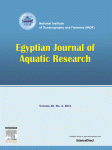
Egyptian Journal of Aquatic Research
Leading the way in aquatic research and ecological insights.Welcome to the Egyptian Journal of Aquatic Research, a premier peer-reviewed academic journal published by ELSEVIER, dedicated to advancing the field of aquatic sciences. With a robust impact factor and recognition as a Q1 journal in key categories such as Aquatic Science and Ecology, this open access journal has established itself as a vital platform for disseminating high-quality research since its inception in 2012. The journal aims to provide comprehensive coverage of topics including ecology, evolutionary biology, and water science, making it a crucial resource for researchers, professionals, and students engaged in these dynamic fields. With Scopus rankings placing it in the top echelons of various categories, the Egyptian Journal of Aquatic Research fosters innovation, collaboration, and knowledge dissemination on a global scale, making it an indispensable asset for anyone invested in understanding and preserving aquatic systems.

Latin American Journal of Aquatic Research
Unveiling the Wonders of Oceanography and Aquatic ScienceLatin American Journal of Aquatic Research (ISSN: 0718-560X) is a distinguished scholarly publication that has been paving the way for aquatic science research since its transition to Open Access in 2008, allowing unhindered access to diverse scientific inquiries conducted in Latin America and beyond. Published by Pontificia Universidad Catolica de Valparaiso in Chile, this journal serves as a vital platform for researchers and practitioners in the fields of Aquatic Science and Oceanography. With an esteemed Q3 ranking in both categories as of 2023, it is dedicated to disseminating high-quality research findings that address pressing ecological and biological challenges. The journal’s reach and impact are reflected in its Scopus rankings, where it stands at the 36th percentile in Oceanography and the 35th percentile in Aquatic Science. Researchers, professionals, and students alike will find valuable insights and data-driven articles that further the understanding of aquatic ecosystems, making it an essential resource for ongoing studies and future innovations.